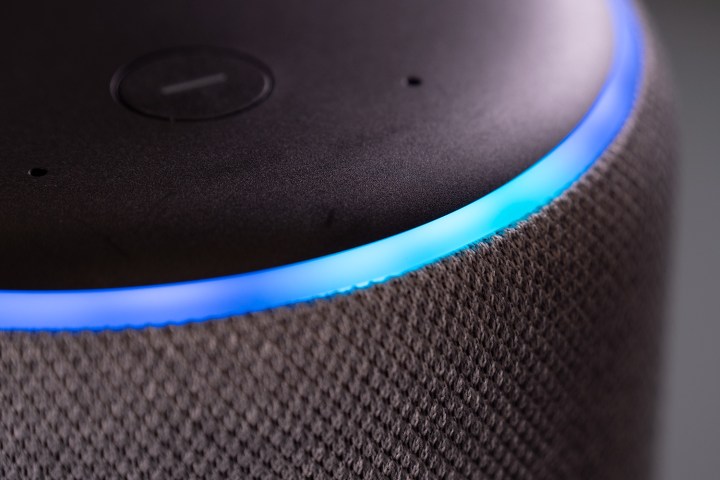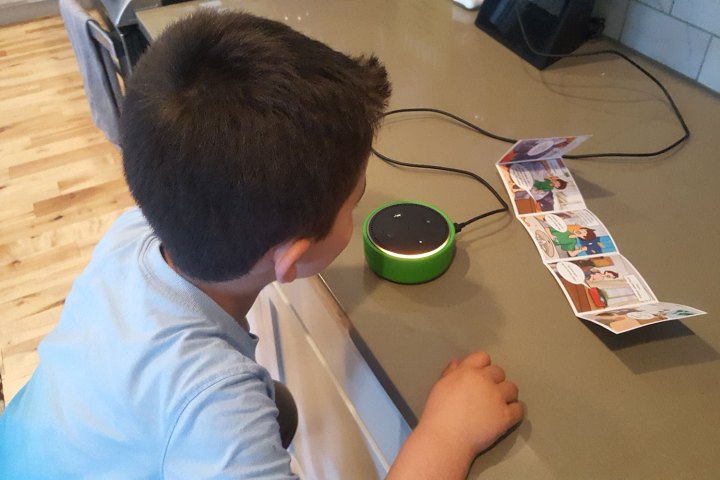While you may not think that a smart speaker is a good homework companion, there are reasons to give Amazon’s voice assistant Alexa a chance to help out. An Alexa device can be a surprisingly handy friend when tackling homework, especially if you’re a little short on time and can’t help out your kids as much as you would like.
Of course, “help” may have different meanings between parents and their children. Asking Alexa for quick answers to questions is a little too close to cheating for most parents. Our options instead focus on how Alexa can be used in helping students learn and work through their homework in a more constructive way.
1. Alexa quiz time

Alexa is great at quizzes. If your students are working to prepare for a quiz or test, or are brushing up on important facts in a particular class, see if Alexa can help out. There are a whole lot of helpful quiz skills out there. For example, for improving math, you can try skills like 1-2-3- Math or Amazon Math, which offers grade-level-appropriate quizzes.
If your kid is learning about computers, then they may benefit from the Computer Fundamentals skill as well. For science, there’s everything from Science Quiz and Chemical Elements to the lighter-hearted Kids Quiz.
2. Alexa’s spellcheck

If your child is working on an essay or writing assignment, they can easily turn to Alexa to ask how a word is spelled if they aren’t sure. For example, if they were to ask, “Alexa how do you spell subtle?” the voice assistant will provide the spelling in a slow, clear manner, ideal for writing things down. Sure, there’s always more traditional spellcheck, but practicing spelling in this way, while writing it down, is a far more effective way to learn accurate spelling, and can be used as often as needed. Encourage your young writers to give it a shot.
Further reading
3. Practicing vocabulary

Let’s say your kid is reading for an assignment and comes across a word they aren’t sure about. They can simply ask Alexa for a definition, such as, “Alexa, what does preposterous mean?” and she will happily give a usable answer. There are also Alexa skills that can help with this, such as Smart Dictionary, which can help kids learn new words.
To get your kids more interested in vocabulary, you may also want to try out the Mad Libs skill, which can help teach everyone just how much fun words can be.
4. Learning a new language

Is your student working to learn a new language? Alexa is also a valuable resource here as well. Skills like SayHi Language Learning can help teach basic conversations and improve how well you can understand a second language when it is spoken aloud, which can be particularly effective. There are many other language skills that can help too, such as quiz-based Cleo, so it’s worth looking around and finding a skill that’s age-appropriate and enjoyable.
5. Getting into science

Alexa is always up for a science discussion. In fact, if your kid is having trouble understanding a scientific practice the way it is described in a textbook, have them ask Alexa about it (“Alexa, what is the water cycle?”) to see if her explanation makes more sense. Sometimes, that’s all you need. This works especially well if you are using Alexa with a smart display like the Echo Show, where visuals can back up the explanation and make it even clearer.
But Alexa can also help with science class in other ways. If your student needs to think of a science project and is out of ideas, the skill Busy Hands has several projects that it can walk you through, including potato batteries, non-spill water, and making slime. For general science interest, Science Kid Radio is a great option well worth exploring.
6. Listening to audiobooks

Remember, Alexa can read audiobooks from many different sources, including Kindle. If your student is having trouble focusing on a text or finishing a reading assignment, you may want to consider switching to an audiobook that Alexa can read aloud. This audio format can be much easier for some people to understand, and enables students to catch up on reading homework while doing other things. However, it won’t teach reading skills directly, so this one is best saved for kids that are a bit older.



